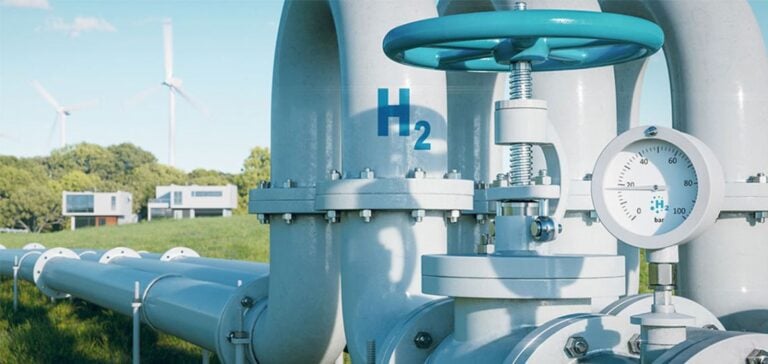The European Commission has approved a €3 billion German plan to build the Hydrogen Core Network (HCN), an essential network for transporting hydrogen in Germany and Europe. This initiative aims to strengthen the infrastructure to support the increased use of hydrogen in the industrial and transport sectors by 2030.
The German Plan
Germany has informed the Commission of its intention to set up a financial support scheme for the construction of the HCN. This network will form the backbone of Germany’s long-distance hydrogen transport pipelines, and will form part of the European hydrogen backbone, connecting several member states. The plan includes investment in the conversion of existing gas pipelines to transport hydrogen, as well as the construction of new pipelines and compressor stations. Transport System Operators (TSOs), selected by the German Federal Network Agency, Bundesnetzagentur, will be responsible for building and operating the HCN. This project aims to strengthen Germany’s various partnerships in the hydrogen sector, particularly with Canada.
Financing arrangements
Financing will be provided in the form of a state guarantee enabling TSOs to obtain loans on favorable terms to cover initial losses. These loans, granted by the German development bank Kreditanstalt für Wiederaufbau (KfW), will be repaid progressively up to 2055, in line with the expected increase in hydrogen demand. The first major pipelines should be operational by 2025, with full completion of the network scheduled for 2032. HCN will be subject to the regulations of the internal energy market, guaranteeing non-discriminatory access and tariff regulation.
Commission Assessment
The Commission has assessed the scheme in accordance with EU state aid rules, in particular Article 107 (3)(c) of the Treaty on the Functioning of the European Union (TFEU) and the 2022 guidelines on state aid for climate, environmental and energy protection (CEEAG). She concluded that this measure facilitates the development of the hydrogen transmission network and is necessary to accelerate investment in this infrastructure. The scheme is deemed proportionate and appropriate, with positive effects outweighing potential distortions of competition and trade within the EU.
Background and outlook
The EU Hydrogen Strategy, launched in 2020, sets ambitious targets for the production and use of clean hydrogen, supported by the European Clean Hydrogen Alliance. The “Fit for 55” package proposes targets for the uptake of renewable hydrogen in industry and transport by 2030, including measures to create dedicated infrastructure and an efficient hydrogen market. The non-confidentiality of the decision will be published under case number SA.113565 in the State Aid Register on the Commission’s Competition website once any confidentiality issues have been resolved. The Commission’s approval of this German plan marks a crucial step in Europe’s energy transition, laying the foundations for a European hydrogen market while minimizing distortions of competition.






















